Final project event: a science-management conference in Antananarivo
The final workshop of the SNIS-funded project took place in Antananarivo from 9 to 11 October 2024, gathering researchers, practitioners, and students for a three-day interdisciplinary exchange. Organized by our Principal Member Víctor Fernández-García, the meeting “Advances in Landscape Fire Research and Management in Southeast Africa” brought together a diverse group of contributors working at the intersection of science, policy, and practice.
The programme included a pre-conference trip to Ampefy, where some international participants had the opportunity to visit tapia woodlands and familiarize themselves with the fire-prone grassy landscapes and local livelihoods of the highlands.
During the conference day, we enjoyed twelve engaging talks, including presentations by Didier Genin (IRD), Christian Kull (University of Lausanne) and Víctor Fernández-García (University of Lausanne and University of León), and Cristina Santín (Swansea University and CSIC). A comprehensive presentation was also delivered by Víctor on behalf of the entire SNIS project team. Additional contributions came from Paulo J. Muando (University Eduardo Mondlane), Miakoampo Randriamiadanarivo (University of Antananarivo), Nokukhanya Mpanza (South African National Parks), and the U.S. Forest Service represented by Johnah Ranariniaina. Perspectives on ongoing major projects and fire management in Madagascar’s protected areas were shared by Adam Devenish (Royal Botanic Gardens, Kew), Dinasoa Tahirinirainy, and Brice Rakotozafy (both from Missouri Botanical Garden).
Attendees included not only researchers, but also protected area managers, public agency staff, and master’s students from Switzerland and Madagascar, ensuring dialogue between academic, technical, and local perspectives. The meeting created a space for the co-development and dissemination of key messages related to fire governance in the region.
Among the central themes discussed were the role of fire as a management tool in fire-prone landscapes, and the importance of a nuanced, case-specific understanding of its ecological and social impacts. The workshop emphasized the need to ground fire management strategies in a combination of scientific evidence, technical expertise, and local knowledge—ensuring they are both ecologically sound and socially informed.
This final meeting marked an important step forward in building cross-sectoral partnerships and shaping context-sensitive approaches to fire management across Southeast Africa.
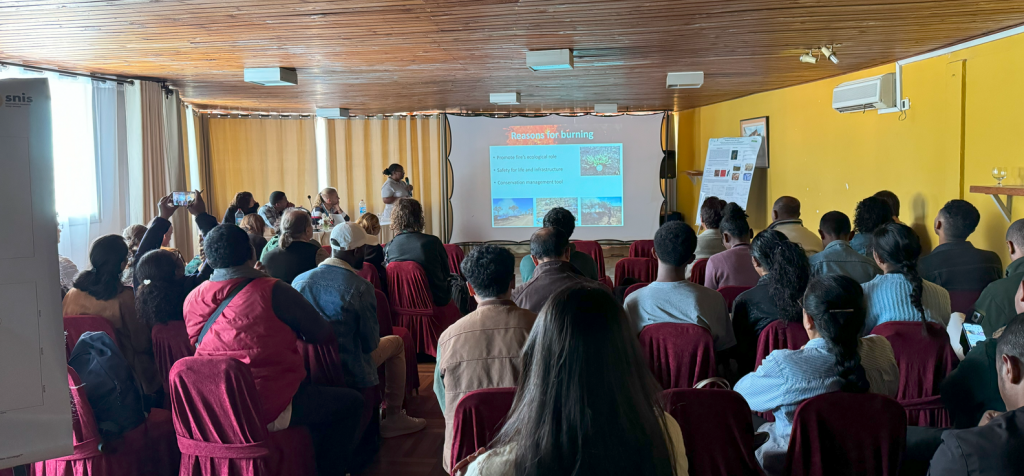

Invited talk at FUEGORED: A full view of the project
We were honored to present an invited talk fully dedicated to our project at the international FUEGORED conference—a key event bringing together fire researchers and practitioners, especially from Iberia and Latin America.
With much of our data now analyzed, the talk provided a comprehensive overview of the project’s objectives, methods, and emerging findings. It was a great opportunity to connect our work with broader fire research efforts across the globe and foster international dialogue.

Sharing Sparks: Presenting Project Insights at IRD and the University of Lausanne
Our Principal Member was recently invited to present key project findings at the Institut de Recherche pour le Développement (IRD) in Montpellier, where an in-depth talk highlighted our latest insights on fire dynamics, burned area mapping, and the relationships between fire regimes, carbon storage, biodiversity, and local livelihoods. The IRD, with several relevant projects in Africa, provided an ideal platform to connect our work with broader fire-related research across the continent.
In addition, a long-format presentation was delivered during the IGD Research Day at the University of Lausanne, offering a broader reflection on the project’s interdisciplinary contributions, spanning remote sensing, ecology, and local knowledge systems.
Dissemination of the project in the main study sites
The fieldwork of the project has been completed, as the in situ dissemination about the project, project objectives and first findings. In every village we have worked, the project has been presented to the regional and local authorities, and to the local population. In some cases, the communication was addressed by organizing a meeting with the authorities and representatives of all the families in the village (e.g. image below in Mozambique) and in others the project was communicated at multiple stages, to the different administrations and participants involved in the project field activities – samplings, interviews, and workshops-. We hope all of the participants and people we have contacted with have spent nice moments with us while we learned from each other.
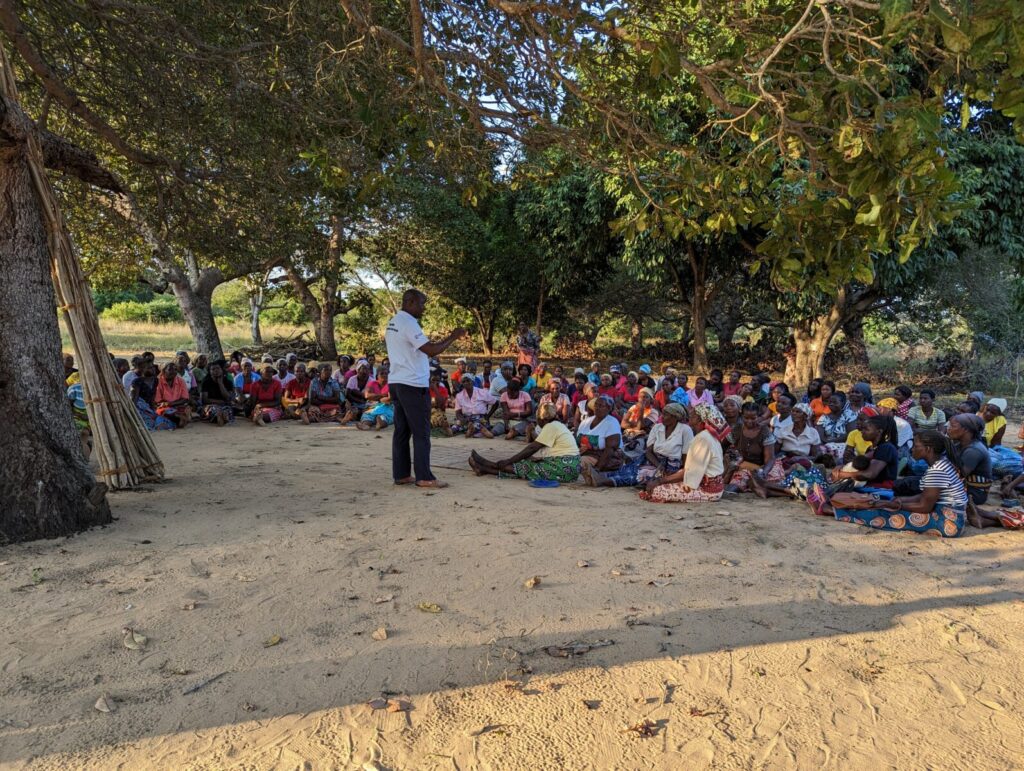
In May 24, the project advances were presented to students and professors at ESNEC-Universidade Eduardo Mondlane
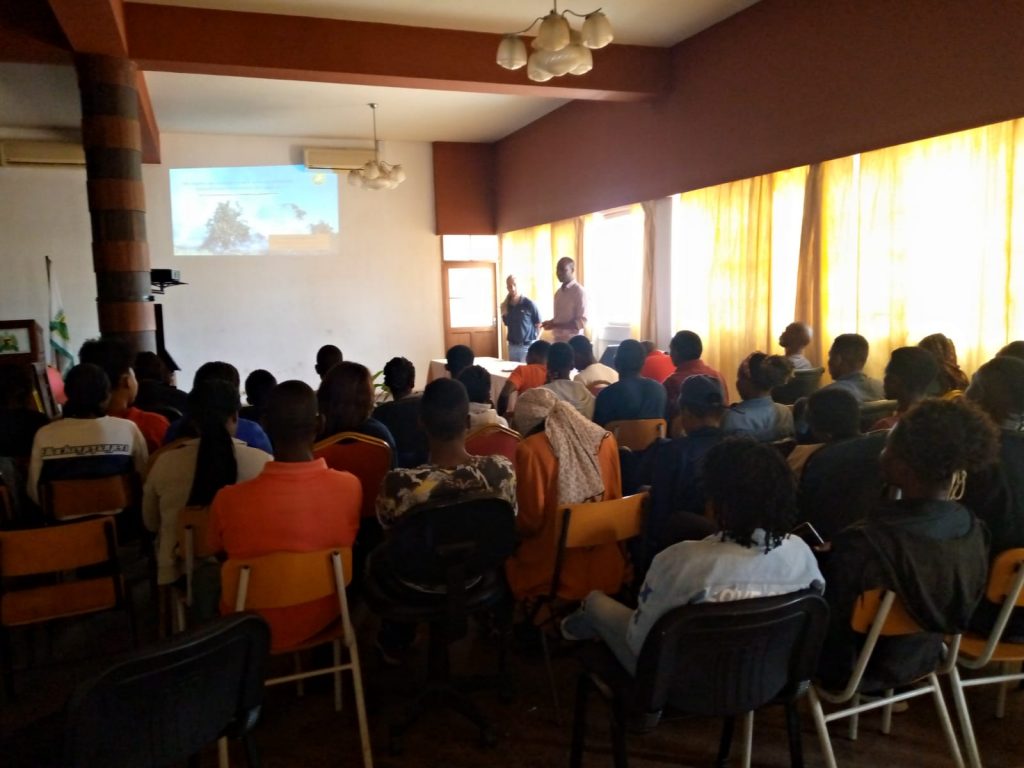
The presentation caused great interest in the academic community, leading to a nice round of questions and discussions.
The first scientific research article of the project reveals the possibility of accurately refining historical burned area data
The characterization of fire regimes must be based on accurate burned area spatial data. Thus, in this work we checked and highlighted the biases of the commonly used coarse-resolution products (MODIS) by comparing them with recent fine-resolution Sentinel-2 burned area data. Our main contribution was to provide solutions to compensate the detected biases, and to identify some of the main sources of error of burned area detection across sub-Saharan Africa. We invite you to take a look here: https://authors.elsevier.com/sd/article/S1569-8432(23)00172-3
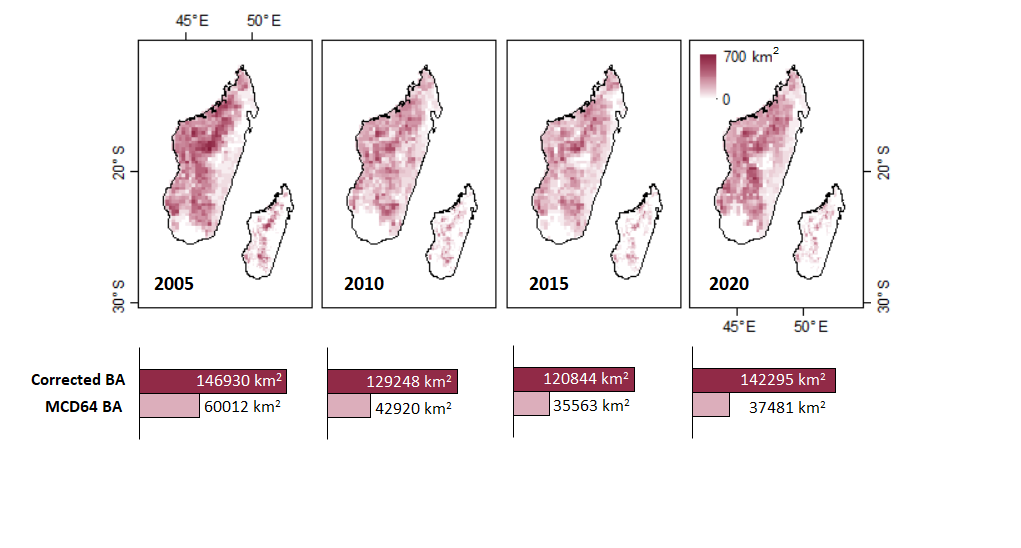
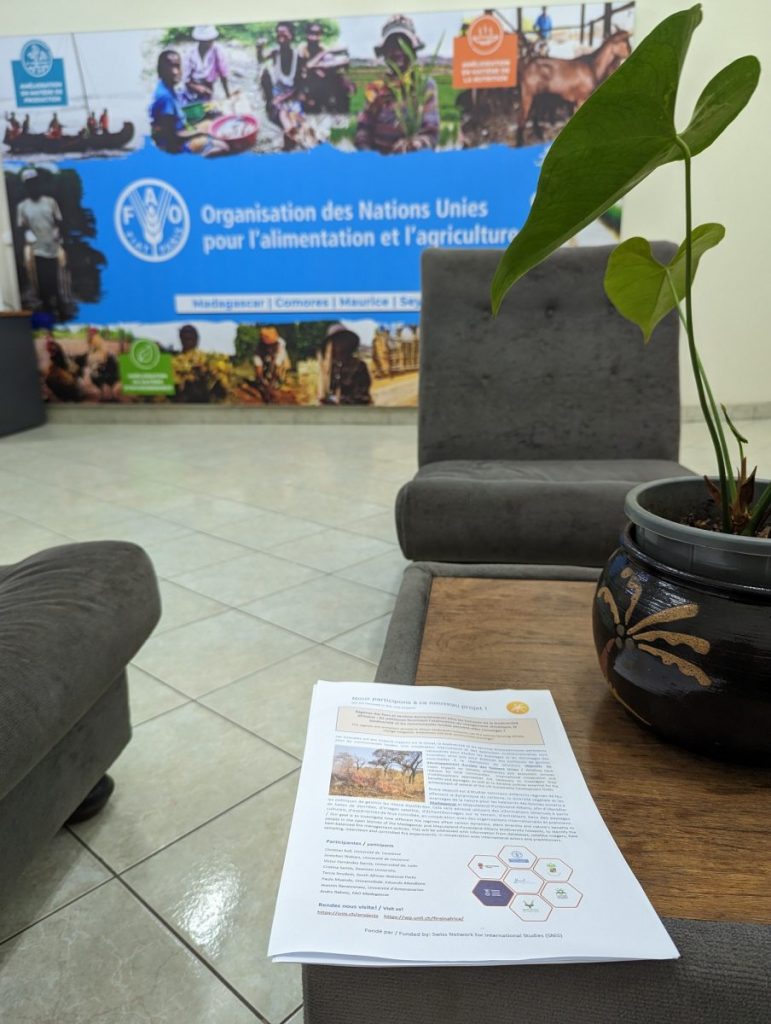
Comunicating the project on site!
To motivate further engagement from people of those institutions already involved, as well as to reach the broad public we have made and distributed posters among our partner institutions in Madagascar and MPA!
Check our project also in some of the institutions and participant’s webpages!
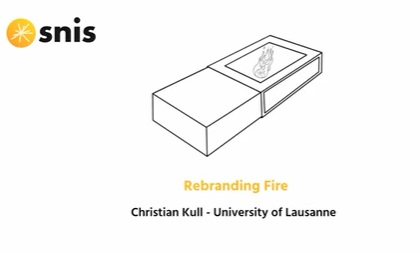
Initial workshop
Our first activity has been the SNIS workshop. There, we met SNIS representatives and leaders form the other granted projects. Likewise, our coordinator, Christian Kull, had the opportunity to introduce our project, as well as the usefulness and consequences of landscape fires. Watch him in this video!

